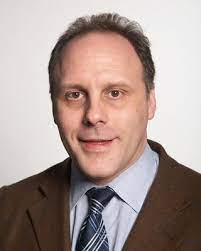New York, New York, September 24, 2021 — When we hit “Refresh” at the top of a screen, we get a new version of whatever we’ve been staring at, in sync with what’s happened since we last signed on. But now, as we cope with the effects of COVID-19, “refresh” is migrating from virtual to real life. We know that things have changed, and we want to recalibrate. We want to be in sync with a new, personal reality.
For most of us, life now seems more fragile, more uncertain. What’s extraordinary, however, is that suddenly we realize that it always has been. We just didn’t do much about it . . . until COVID awakened us. Now we feel licensed – energized – to try and improve our lives within its inevitable limitations. If, prior to COVID, we rarely thought about changing course, then now – in light of all that’s happened or still might – inertia is no longer an option. We’ve hit “refresh.” We’re reconsidering work and relationships. We’re reassessing, as if just having survived demonstrates that we’re in a new place.
The disruptions caused by COVID may have accommodated us to disruption. So instead of hunkering down now, and circling our wagons, we’re busting out. You hear words like “agency,” “choice,” and “prerogative,” as if the status quo has become untenable. In some cases, unendurable. People want to take control of where they are and where they may be going. Consider some examples:
- People are no longer putting up with burnout, and are leaving for jobs with a better work/life balance
- Demands for improved working conditions have skyrocketed, and unionization has picked up after years of stagnation
- The trend towards endless hook-ups has flattened, as relationships emerge as important anchors of individual well-being
- Climate change has entered everyday political discourse, as we realize that Earth is precious – the only planet that we’ll ever have
- Book sales have risen, as people nurture their inner lives
- Essentially, we are reconsidering what matters in life – love, family, the environment – as opposed to limitless consumerism
In his recent book, Through a Screen Darkly: Psychoanalytic Reflections During the Pandemic, he discusses people’s resilience in the face of COVID. But “resilience” is not just the capacity to bounce back to where we were. It’s also the will to change and move on, so that we adapt to what is right for us right now. This kind of resilience requires self-awareness – apparently, one good side-effect of the pandemic.
As we continue to navigate the uncertainties of the pandemic – particularly with the rise in Delta Variant cases coupled with the return to school and work for many + the continued increase in in-flight bad behavior, managing mental health and anxiety remains an important topic for all of us. And it’s causing us to re-evaluate life decisions. Perhaps even decisions we should have re-evaluated years ago –the pandemic is giving us a license to look at things from a different lens.
Through a Screen Darkly: Psychoanalytic Reflections During the Pandemic written by Dr. Ahron Friedberg addresses the topics above and more through a series of 60 essays that document his experience working with patients during the COVID-19 pandemic. Dr. Friedberg will be hosting a reading of this book (details below) and offering practical applications for how to develop resilience as well as make smart decisions in this moment.
About Dr. Ahron Friedberg
Dr. Ahron Friedberg, M.D. is a Clinical Professor of Psychiatry at Icahn School of Medicine at Mount Sinai. He is a practicing psychiatrist and psychoanalyst in Manhattan. At Mount Sinai, Dr. Friedberg served as Co-Chair of the Psychiatry Advisory Board and has helped develop and lead several academic and teaching initiatives including their Innovations in Psychiatry Symposium. Dr. Friedberg also directs the ‘Symposium’, a national meeting held annually at Mount Sinai. He has participated in clinical research as part of the Department’s Mood and Anxiety Program, which focuses on translational neuroscience and understanding resilience.
Dr. Friedberg has served twice as national President of the American Society of Psychoanalytic Physicians. He was named first Executive Editor of International Psychoanalysis.net, a highly regarded online psychoanalytic resource. In addition, he is an Acquisitions Editor of International Psychoanalytic Books, Book Editor of Psychodynamic Psychiatry, Editor of the American Academy of Psychodynamic Psychiatry and Psychoanalysis Academy Forum, elected chair of the International Council of Editors, Psychanalytic Journals, as well as a regular contributor to Psychology Today.
His research been published in numerous peer-reviewed journals, including The Psychoanalytic Review, The American Journal of Psychoanalysis, Neuro-psychoanalysis, and Psychodynamic Psychiatry. Dr. Friedberg’s writing focuses on the treatment of anxiety and trauma, clinical technique, and the concepts of resilience, consciousness, and desire in psychoanalysis. He has received awards for excellence in writing, in addition to originality and scholarship.
For more information on Dr. Ahron Friedberg, visit www.ahronfriedbergmd.com.
____ Live Event____
September 25 at 3 p.m. Dr. Ahron Friedberg will lead attendees through a reading & discussion of Through A Screen Darkly: Psychoanalytic Reflections During the Pandemic. Food and Beverage will be provided. Please note that you will be required to provide proof of vaccination. The event will be held outside with social distancing and masking.
Through a Screen Darkly offers relevant stories of Dr. Ahron Friedberg’s patients as they deal with the mental health consequences of the pandemic – from parenting to commuting to making important career and quality of life decisions. The book identifies the ways reconnecting, delicately, with others and oneself during this challenging time, based on Dr. Friedberg’s personal experience as a NYC psychiatrist during the pandemic.


